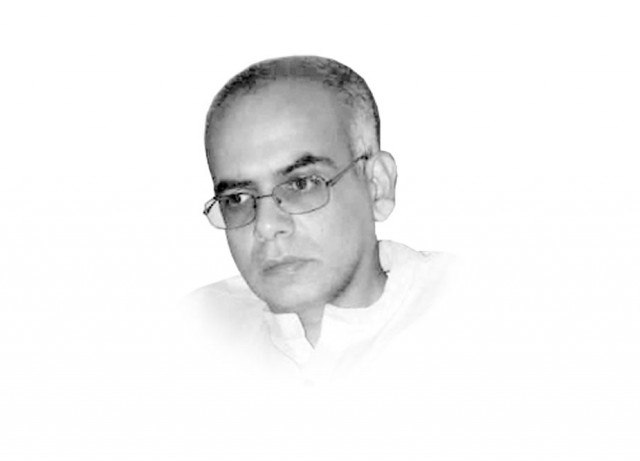Partly true
The corruption and poor governance in our country is evident enough for all to see

The writer is a development anthropologist currently based in Fairfax, Virginia
In his recent interview with a local Pakistani paper, which was subsequently reprinted by other media outlets as well, Mr Marc-Andre Franche said in no uncertain terms that critical change could only take place in Pakistan when the nation’s influential elite gets beyond focusing narrowly on their individual and family interests, and begins working for the benefit of the nation.
The corruption and poor governance in our country is evident enough for all to see. The fact that minorities, women, and other marginalised sections in our society are vulnerable to brutal forms of exploitation is also hard to deny. Therefore, Mr Franche is right in pointing out that Pakistan cannot afford to have an elite that takes advantage of the cheap and uneducated labour when it comes to making money, and then takes off to London or Dubai to indulge in decadence, and make investments in property in New York or Europe.
Mr Franche is certainly not the only one frustrated that Pakistan is not making more progress in terms of addressing the deprivation and disparities which pervade the country. Many thinking Pakistani citizens are equally upset to see the lack of effectively functioning institutions, the fact that nearly 40 per cent of our population is still desperately poor, and that large parts of the country lack access to even basic infrastructure.
However, Mr Franche’s indictment that Pakistan will not be able to survive by creating more ghettos at one end and big huge malls and gated communities for the rich at the other end, is a bit problematic. While in and of itself the statement is not false, it tells only half the truth.
Given his longstanding affiliation with the development sector, and his own Colombian heritage, one can presume that Mr Franche is no stranger to the range of disparities he has described with reference to Pakistan as being endemic to most developing countries around the world. Surely, Mr Franche is familiar with the Dependency School of thought and the World Systems Theory, which see development and underdevelopment as two sides of the same coin, whereby poor or so-called ‘developing’ countries cannot catch up to the richer and more industrialised world, since it is their very poverty which enables the richer world to sustain itself. He must have heard of Arturo Escobar, the Columbian-American anthropologist, who has argued how the highly technocratic nature of international development, which includes UN agencies, has become a mechanism of control comparable to colonialism and cultural imperialism.
Many of the institutional mechanisms within Pakistan do overly favour the elite. However, it is not institutional mechanisms within the state alone, but also those of international agencies such as the World Bank, which continue to rely on elite-led economic growth. The propagation of the market mechanism, the continued emphasis on capital intensive growth, such as the Green Revolution in the past, or on corporate farming nowadays, are hardly agricultural strategies which help poor farmers. It is thus unfair of Mr Franche to claim that the powerful landed elite in Pakistan continues to exploit the rural populace on the one hand, and then asks the UN and other development agencies to invest in the uplift of their districts.
Long gone are the days when “Adjustment with a human face” by Unicef, powerfully documented the negative impacts of the structural adjustment policies of the World Bank and IMF. Under pressure to tap into the private sector to meet their financial needs, many UN agencies have increased collaboration with major multinational corporations, which hardly have enviable environmental and worker protection records.
Therefore, agencies like the UNDP also have to become more reflexive rather than blaming the elite of developing countries. The only way a critical change to end the dearth of opportunities in Pakistan, and in many other developing countries, will come is when not only the national elite, but the international community as a whole, including multilateral and bilateral development agencies in particular, try to reform the overarching global hierarchies, which are predicated on the exploitation of disparities within, and between, countries around the world.
Published in The Express Tribune, September 9th, 2016.
Like Opinion & Editorial on Facebook, follow @ETOpEd on Twitter to receive all updates on all our daily pieces.
















COMMENTS
Comments are moderated and generally will be posted if they are on-topic and not abusive.
For more information, please see our Comments FAQ